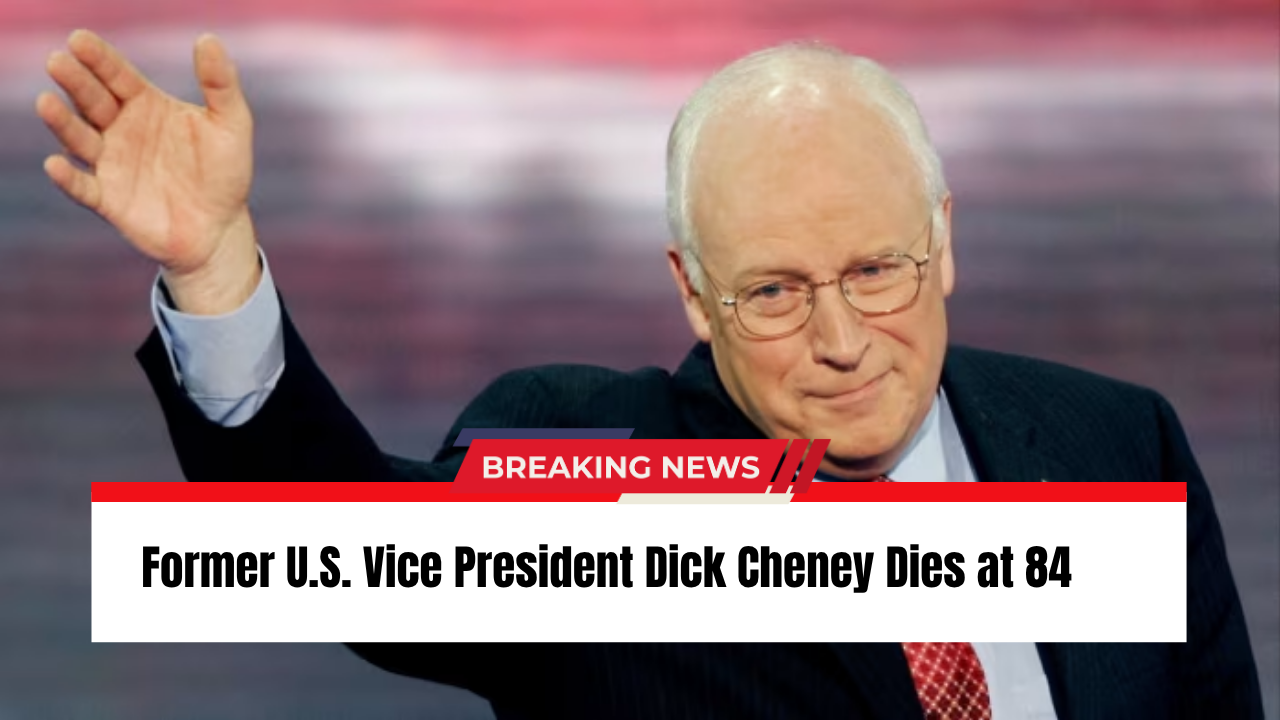Dick Cheney, the former Vice President of the United States and one of the most influential and controversial figures in modern American politics, has died at 84. His family confirmed that he passed away from complications related to pneumonia and long-standing cardiac and vascular disease.
Cheney, who served as vice president under George W. Bush from 2001 to 2009, played a central role in shaping U.S. national security policy, particularly following the September 11, 2001 attacks.
Key Role in the Iraq War
Cheney was a forceful advocate for the 2003 U.S. invasion of Iraq, arguing that Iraqi President Saddam Hussein possessed weapons of mass destruction and posed a global threat. No stockpiles were ultimately found, but Cheney maintained that the war was justified based on the intelligence available at the time and the strategic removal of Hussein from power.
He became widely viewed by historians as one of the most powerful vice presidents in U.S. history, often shaping foreign policy decisions and expanding the authority of the executive branch.
Expanding Executive Power
Believing presidential power had diminished after the Watergate scandal, Cheney worked to strengthen the presidency, assembling his own influential national security staff inside the White House. He sometimes clashed with senior administration officials, including Colin Powell and Condoleezza Rice, over foreign policy strategies.
Cheney also supported interrogation practices used on terrorism suspects after 9/11—including waterboarding—methods described by critics, human rights groups, and a U.S. Senate report as torture. Cheney defended them as necessary for national security.
Early Life and Political Career
Born January 30, 1941, in Lincoln, Nebraska, Richard Bruce Cheney grew up in Wyoming and later attended the University of Wyoming, earning both undergraduate and graduate degrees in political science.
His political career began in the Nixon and Ford administrations, where he worked closely with Donald Rumsfeld. Cheney later served as the U.S. Secretary of Defense under George H. W. Bush, overseeing the U.S. military operation that expelled Iraqi forces from Kuwait during the Gulf War in 1991.
Before becoming vice president, Cheney was CEO of the oil and defense services company Halliburton (https://www.halliburton.com/), a connection that later drew criticism for the company’s contracts during the Iraq War.
Family and Legacy
Cheney is survived by his wife Lynne Cheney (https://en.wikipedia.org/wiki/Lynne_Cheney), and their daughters Liz Cheney and Mary Cheney. Liz served in the U.S. House of Representatives and became known for her outspoken criticism of Donald Trump following the January 6 Capitol attack.
Cheney’s legacy remains sharply divided. Supporters credit him with decisive leadership during crisis, while critics argue his policies contributed to prolonged conflict and expanded government authority.



